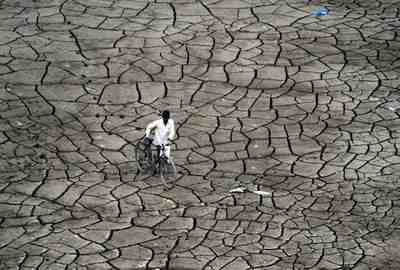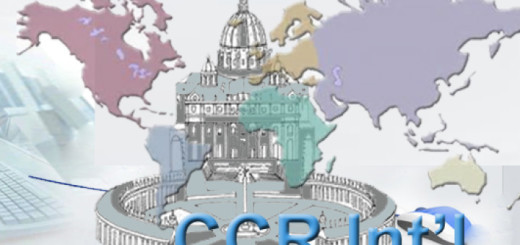Conquering climate change requires global cooperation

What solutions should be expected from upcoming Paris summit?
By Father Robert Athickal
India: (UCAN) The 12-day U.N. Climate Change Conference in Paris is scheduled to begin Nov. 30.
More than 190 nations will gather seeking new global agreements aimed at reducing greenhouse gas emissions and thus avoiding the threat of dangerous climate change.
The meeting will address scientific warnings that if greenhouse gas emissions continue to rise beyond the 2 degrees Celsius threshold, global warming will become catastrophic and irreversible. Current emission trajectories point to a rise of about 5 degrees Celsius. That may not sound like much, but seemingly small changes in temperature can mean big differences for the Earth.
Global temperatures have been on a clear upward path. There was a spike in 1998, after which temperatures dropped — but still warmer than previous decades — that led some climate skeptics to claim that the world was cooling.
During the period since 1998, global temperatures have risen at a slower pace than they did in the previous 30 years. Skeptics seized on that too as evidence to show that global warming has "paused."
But it is important to note that temperatures have not fallen, or stalled — they have continued to rise. Given the variations that characterize our weather systems, a period in which the rate of warming slowed is not unexpected.
The Guardian reports, the "World Meteorological Organization's analysis narrowly places 2014 as the hottest recorded since 1850, as global warming continues into 2015."
The great efforts the United Nations made in Kyoto, Copenhagen, Rio and Bali were important though not conclusive. Getting agreement from 196 countries was never going to be easy.
The intervention of Pope Francis through his encyclical "Laudato si'" in many ways has changed the scenario. Pope Francis was the first among the world leaders to come out in definitive terms saying that world economies have no choice but to agree on the fact of climate change and subsequently comply with the negotiations.
What is likely to be agreed in Paris? The European Union will cut its emissions by 40 percent — compared with 1990 levels — by 2030. The United States will cut its emissions by 26 percent to 28 percent, compared with 2005 levels, by 2025. China will agree that its emissions will peak by 2030 and level off.
Nations responsible for about two-thirds of global emissions have now come up with their targets but some countries, most notably India, have not yet done so, despite being asked to meet a deadline at the end of March.
Indian Response
As a response to the Paris Summit, India's head of the Ministry of Environment and Forests, Prakash Javadekar, recently stated that the "lifestyle adopted in developed countries is unsustainable" and it will require five earths to fulfill their lifestyle demands. On the other hand, the Indian lifestyle is sustainable where one Earth is sufficient.
Hitting out at rich nations, he said, "Greed and an unsustainable lifestyle should have no place in a new world regime to fight climate change and its ill effects."
The developing countries "cannot be asked to compromise on that goal in the name of climate change. Every poor person has the right to emerge out of poverty, and poor and developing countries need sufficient carbon space to ensure sustainable development. As climate change impacts the poorer and vulnerable sections severely, we must ensure climate justice," he said.
The minister's words make sense and India must bargain for climate justice as a third-world developing economy. Pope Francis, especially with his much talked-about encyclical, could be looked as a powerful vocal ally to support India's stand.
Does this mean we Indians can afford climate complacency and stay away from the negotiating table in Paris? Can India go on polluting the planet until a time we have reached the development of wealthier countries? Would that be climate justice?
Indian scene: scant rainfall
The Indian economy is primarily based on agriculture and the industrial development conversation makes little sense to us. The meteorologists tell us that 40 percent of Indian districts have been rain-deficient for the last three years, which was bad news for the farmers who keep up our economy. Just look at the rising graph of farmer suicides in India, which looks grave to even a casual observer. We need the rains again, urgently.
Look at a state like Bihar, once called the rice bowl of India. Most of Bihar has not cultivated rice for the last three years. Many farmers have migrated to other states. If they don't harvest rice, the concern spreads to neighboring states.
We need a resilient climate for our crops.
Drinking water prices are skyrocketing in India and its supply is shrinking fast. Nearly all Indian states are facing a drinking water crisis.
Pope Francis' encyclical on ecology, "Laudato si'" refers to the global water crisis: "Fresh drinking water is an issue of primary importance since it is indispensable for human life … Water supplies used to be relatively constant, but now in many places demand exceeds the sustainable supply, with dramatic consequences in the short and long term."
India and other developing countries do not have to take the brunt of greenhouse emissions alone. The wealthy and powerful countries might squirm and hesitate because of the powerful corporations lobbying with them, but eventually they will chip in.
Paris and beyond
India will arrive in Paris as a very vulnerable party. How can it bargain from a sinking ship? In fact the whole planet is sinking. Even America is facing its own water shortage, as the rampant wild fires in California can attest. Nobody is a bully here except the shortsighted corporations.
Paris calls for a paradigm shift in international understanding. As part of a growing common sense, all countries have to listen to the collective wisdom of scientists as they warn us that we are heading to an abyss, and must pull back. We have no other choice. Adjustments will have to be made by everybody.
This is an unprecedented age of human development. Gone are the categories of "our country" and "their country." With our advanced technologies and consciousness we can do this magnificent work, provided we have the give-and-take mentality of mutual assistance and cooperation.
Jesuit Father Robert Athickal, based in India's Bihar state, is an environmentalist and the founder of Tarumitra (Friends of Trees), a nationwide organization of some 200,000 students promoting ecological sensitivity. The United Nations conferred it special consultative status in 2005.
Source: UCAN
















